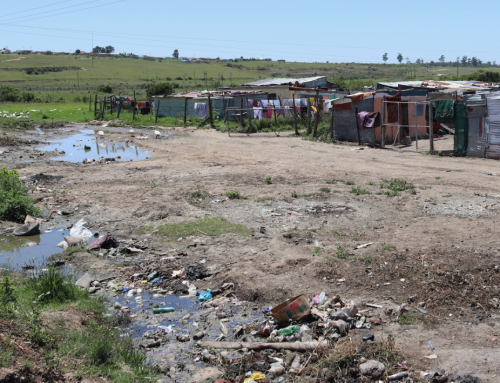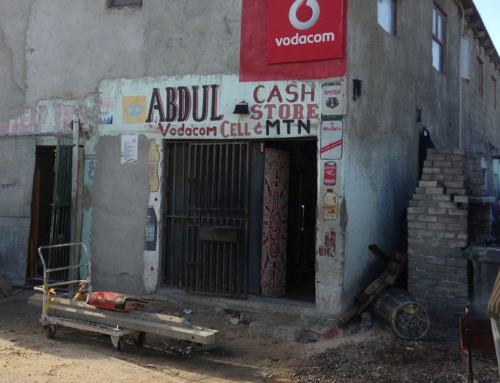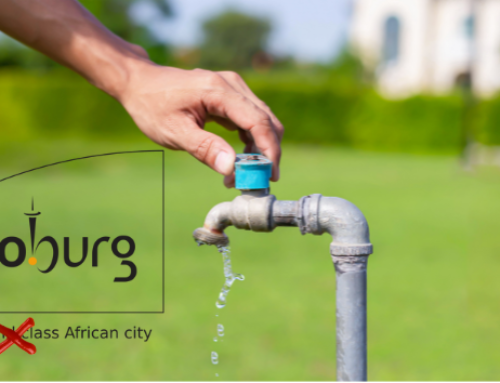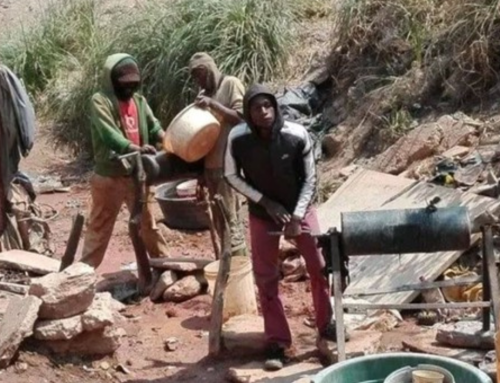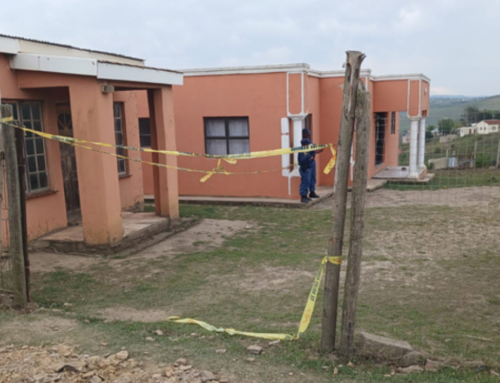 Opinion Piece by Mr Yongama Zigebe, Secretary General of the United Democratic Movement
Opinion Piece by Mr Yongama Zigebe, Secretary General of the United Democratic Movement
During the apartheid era, South Africans lacked the freedom to protest and express their views as they do today. This liberty and right of expression are something we should be grateful for. Back then, protesting, especially for those with the wrong skin colour, often resulted in summary arrest or even being shot on the spot. Our history is marked by tragic massacres stemming from protests for human rights.
Service delivery protests however have become a frequent occurrence in South Africa, particularly in under-served communities, and have become deeply ingrained in our societal fabric. These protests often result in the destruction of infrastructure and property, causing significant harm to our economy.
Unfortunately, they are escalating in frequency and violence, drawing larger crowds, primarily composed of disaffected and unemployed youth. The fragility of our society is evident, with the potential for any one of these protests to spiral out of control. Not only that, instead of government responding with open ears they respond with opening fire, and the rubber bullets fly.
Of course, service delivery protests often stem from deep-seated grievances related to inadequate access to basic services such as water, sanitation, housing, and electricity. These protests are symptomatic of broader issues of social inequality and marginalisation, particularly in historically disadvantaged communities.
The escalation of service delivery protests can have severe economic consequences, including the destruction of infrastructure and property, disruptions to supply chains, and loss of investor confidence. This undermines economic growth and exacerbates poverty and unemployment, further fuelling social unrest.
Service delivery protests are often driven by a complex interplay of political, social, and economic factors. While grievances may be rooted in legitimate concerns about service delivery, protests can also be exploited by political opportunists seeking to advance their own agendas or undermine rival factions.
The memory of the 2021 KwaZulu-Natal riots is still fresh in our minds, serving as a stark reminder of the destructive power of unrest. What began as discontent over the incarceration of former President Jacob Zuma quickly escalated into a wave of violent looting and arson attacks, causing billions of rands worth of damage, insurance claims, lost jobs, and setting our economy on the back foot. Within just ten days, the country experienced severe devastation, highlighting the urgent need for effective measures to address the root causes of social unrest.
In January 2024, the Voice of Phoenix, a community organisation in Durban, attributed clashes between public order police and Phoenix residents during a service delivery protest over the water crisis to aggressive police action. Reports emerged of rubber bullets being fired at protesting citizens, resulting in injuries sustained by several residents involved in the protest in Phoenix, located north of Durban.
Similarly, in the same month, the Public Works and Roads Head Office in Mahikeng, North West, faced unrest as angry individuals reacted to an announcement regarding the initiation of the Routine Roads Maintenance Project. Protesters disrupted normal operations by burning tyres in front of the main entrance and alternate gates, obstructing officials’ access to the premises and impeding day-to-day work and service delivery.
In March 2024, Amnesty International South Africa condemned the South African Police Service’s (SAPS) public order police (POP) for their disproportionate response and intimidation tactics during a peaceful protest outside Standard Bank headquarters in Johannesburg. The organization labelled the police actions as intolerable.
Extinction Rebellion had organised the protest to oppose what they deemed Standard Bank’s “funding of climate crimes in Africa” and demanded that the bank refrain from funding new coal projects. A group of seven Extinction Rebellion activists attempted to stage a sit-in in front of one of the parking entrances to Standard Bank, located on a public road. However, before they could sit down, SAPS members intervened with heavy-handed tactics.
In April 2024, residents of Mahikeng, located in the North West province, voiced their discontent with the persistent lack of service delivery in their community through protest, the method they believed would compel government attention. Reports indicated that police responded to the disgruntled residents by firing rubber bullets. The United Democratic Movement (UDM) condemned the use of rubber bullets against community members during service delivery protests at that time.
On Friday, April 19, 2024, a group of individuals reportedly entered the premises of Tosca Primary School and set fire to seven classrooms, school furniture, files, and textbooks. Earlier that week, on Tuesday, the Department of Labour had closed a block of three classrooms, citing concerns about their suitability for teaching and learning. In response, members of the community proceeded to close down the entire school, and a few days later, the classrooms were deliberately set ablaze. The best part was government’s astonishment at the community’s reaction to what had had happened, even though they were correct in principle that our people should not be destroying infrastructure, books, school records and furniture.
The ruling party politicians and government officials should not act all surprised and indignant when our people act in violence; it is their inattentiveness which taught them to act in this manner. How else does one get the attention of a government who does not listen and respond to the needs of its people.
Now from a UDM perspective, given the potential for protests to spiral out of control, proactive measures would be implements to prevent escalation and mitigate the risk of violence. This includes effective communication, early intervention by law enforcement agencies, and efforts to address grievances through peaceful and constructive means. The answer for the UDM lies in addressing the root causes of service delivery protests requires a multi-faceted approach that encompasses meaningful dialogue, community engagement, and evidence-based policy interventions. This includes improving governance, enhancing accountability, and prioritising investment in infrastructure and social services in under-served areas.
South African voters should however get the message loud and clear; the African National Congress ignores you for the entire time in-between elections and come election time, all of a sudden loadshedding miraculously disappears, there is a rollout of a massive job creation scheme, and schools, hospitals and police stations are officially handed over to communities.
Meanwhile the country sits with a massive water crisis, it is running broke, has an immigration problem, and our people are held hostage by criminals and women are raped daily, and so the list goes. Why vote for the Always Nurturing Corruption if this is the way they treat you 24/7, 365 days a year, aside for the three months they campaign before elections.




